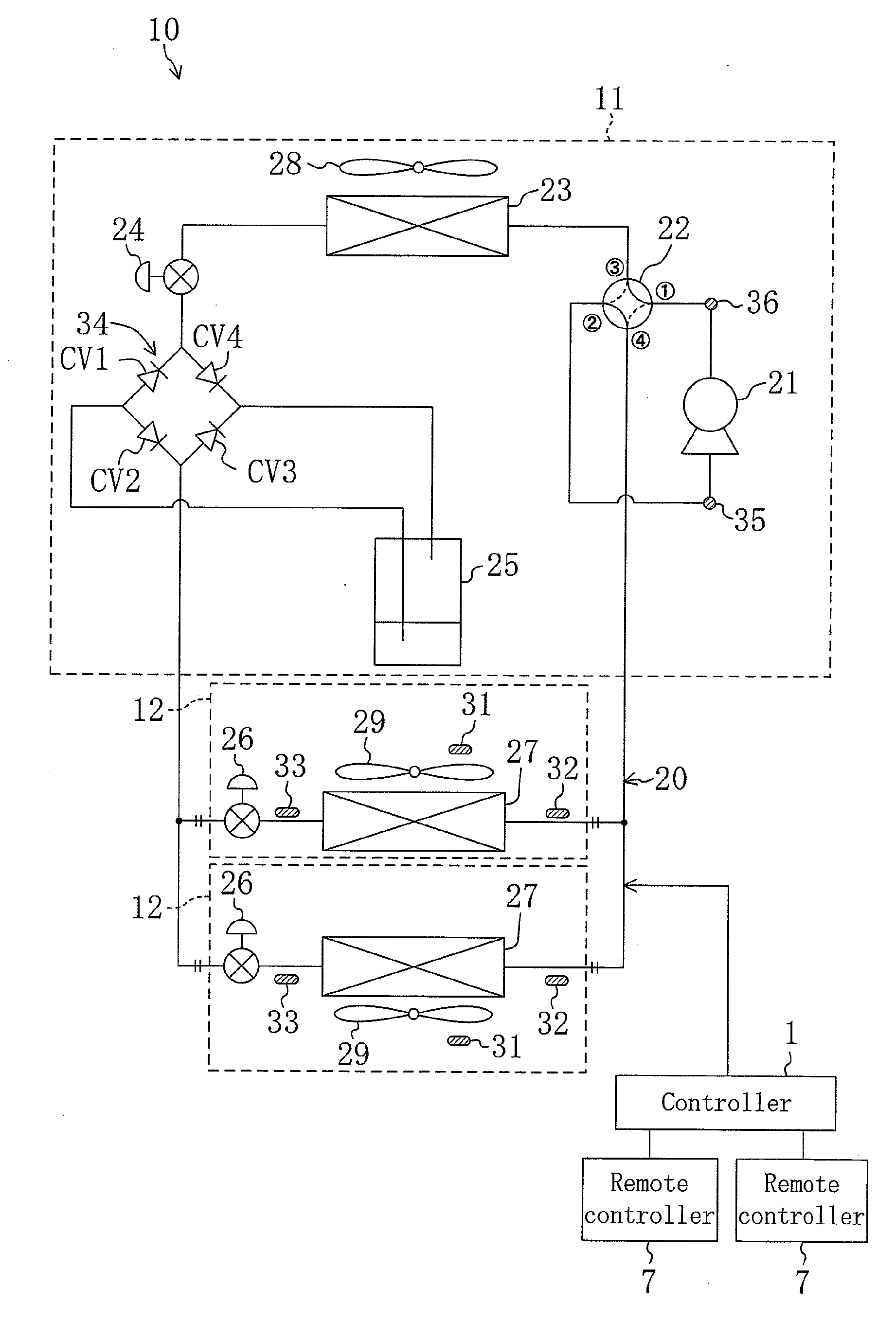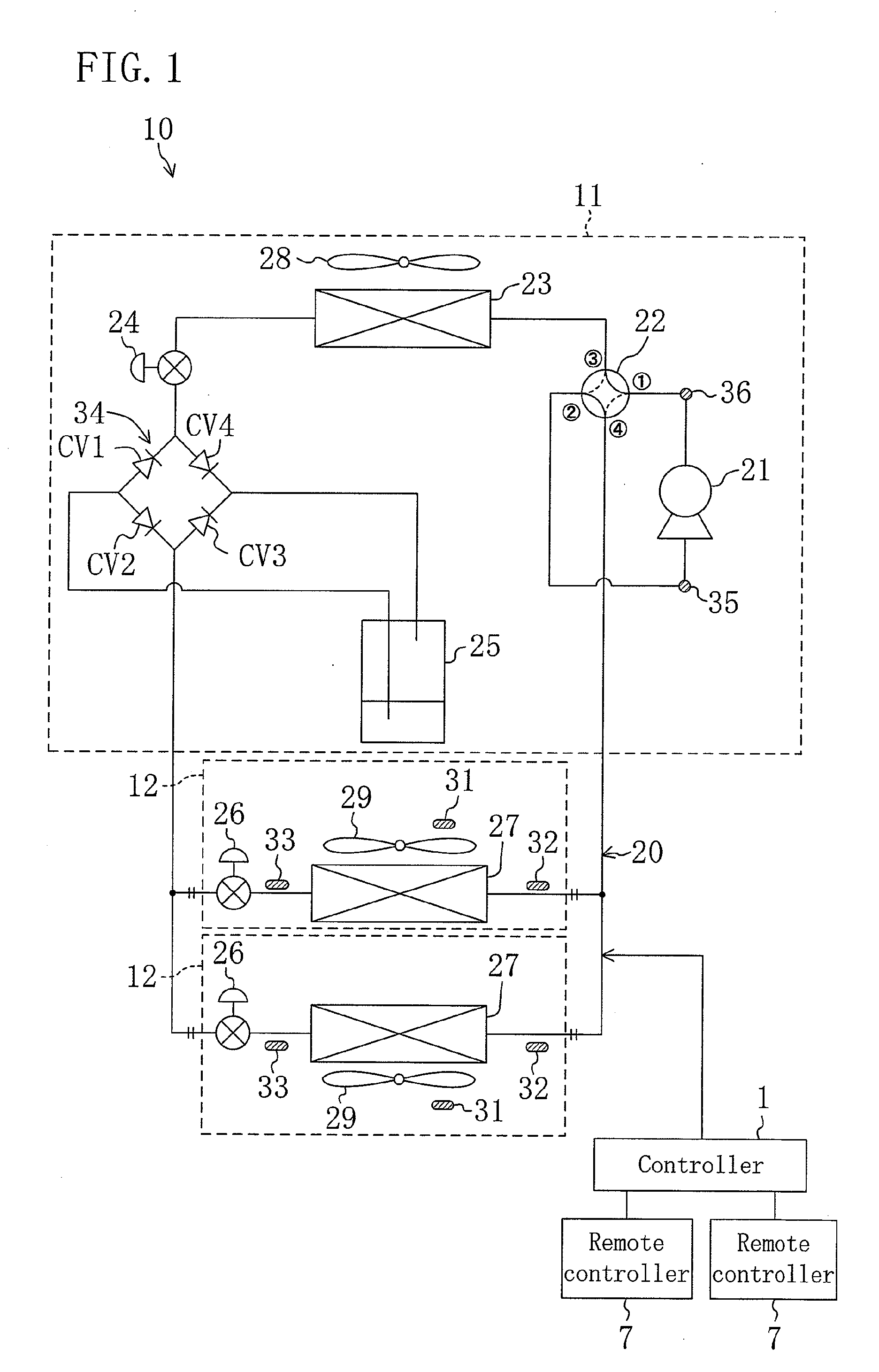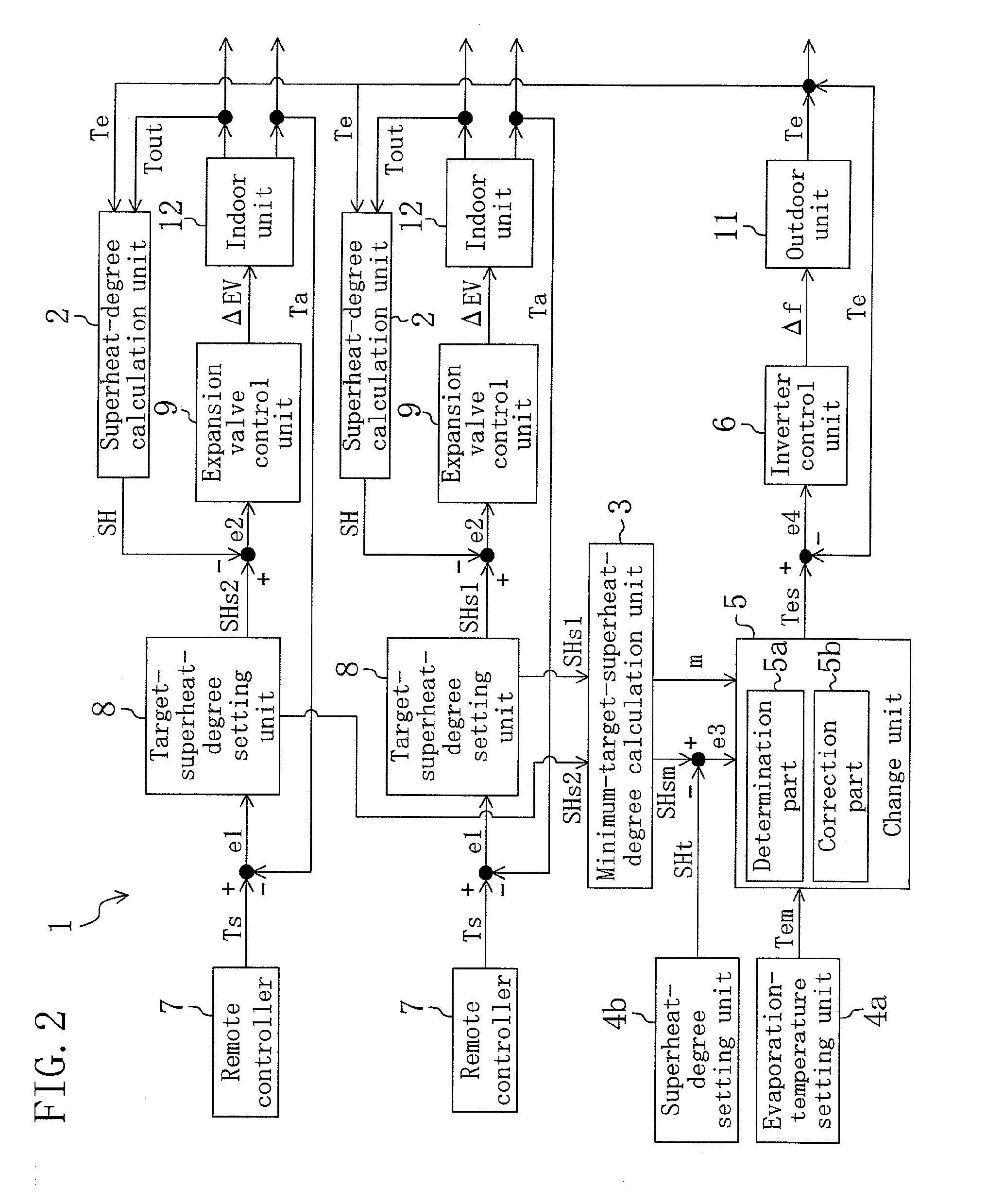Refrigeration system
a refrigeration system and compressor technology, applied in refrigeration components, refrigeration safety arrangements, light and heating equipment, etc., can solve the problems of increasing power consumption of compressors, reducing compressor power consumption, and evaporation temperature approaching the set temperature, so as to reduce compressor power consumption, reduce the coefficient of performance, and prevent the amount of heat exchange
- Summary
- Abstract
- Description
- Claims
- Application Information
AI Technical Summary
Benefits of technology
Problems solved by technology
Method used
Image
Examples
Embodiment Construction
[0061]An embodiment of the present invention will be specifically described hereinafter with reference to the drawings.
[0062]FIG. 1 is a refrigerant circuit diagram illustrating an air conditioner according to this embodiment. The air conditioner (a refrigeration system) (10) of this embodiment is a multi-type air conditioner including an outdoor unit (11) and a plurality of indoor units (12), and can perform cooling operation and heating operation. The outdoor unit (11) is placed outdoors, and each of the indoor units (12) is placed in an indoor space. As illustrated in FIG. 1, the air conditioner (10) includes a refrigerant circuit (20), a controller (1), and remote controllers (7) associated with the respective indoor units (12).
[0063]
[0064]The refrigerant circuit (20) is a closed circuit using carbon dioxide as a refrigerant, and is configured to perform a supercritical refrigeration cycle in which the high pressure of the refrigerant circuit (20) is set at a pressure higher tha...
PUM
 Login to View More
Login to View More Abstract
Description
Claims
Application Information
 Login to View More
Login to View More - R&D
- Intellectual Property
- Life Sciences
- Materials
- Tech Scout
- Unparalleled Data Quality
- Higher Quality Content
- 60% Fewer Hallucinations
Browse by: Latest US Patents, China's latest patents, Technical Efficacy Thesaurus, Application Domain, Technology Topic, Popular Technical Reports.
© 2025 PatSnap. All rights reserved.Legal|Privacy policy|Modern Slavery Act Transparency Statement|Sitemap|About US| Contact US: help@patsnap.com



